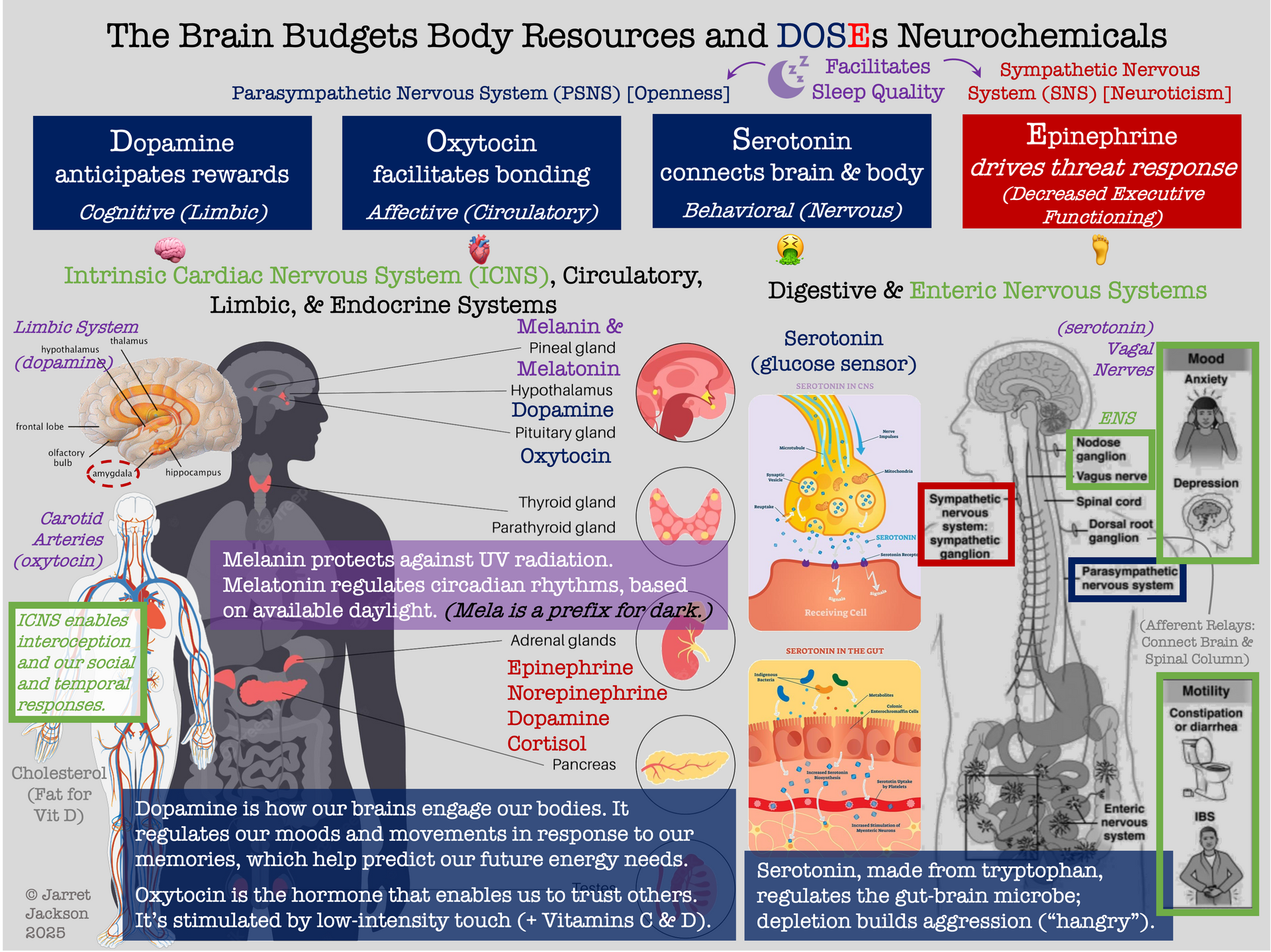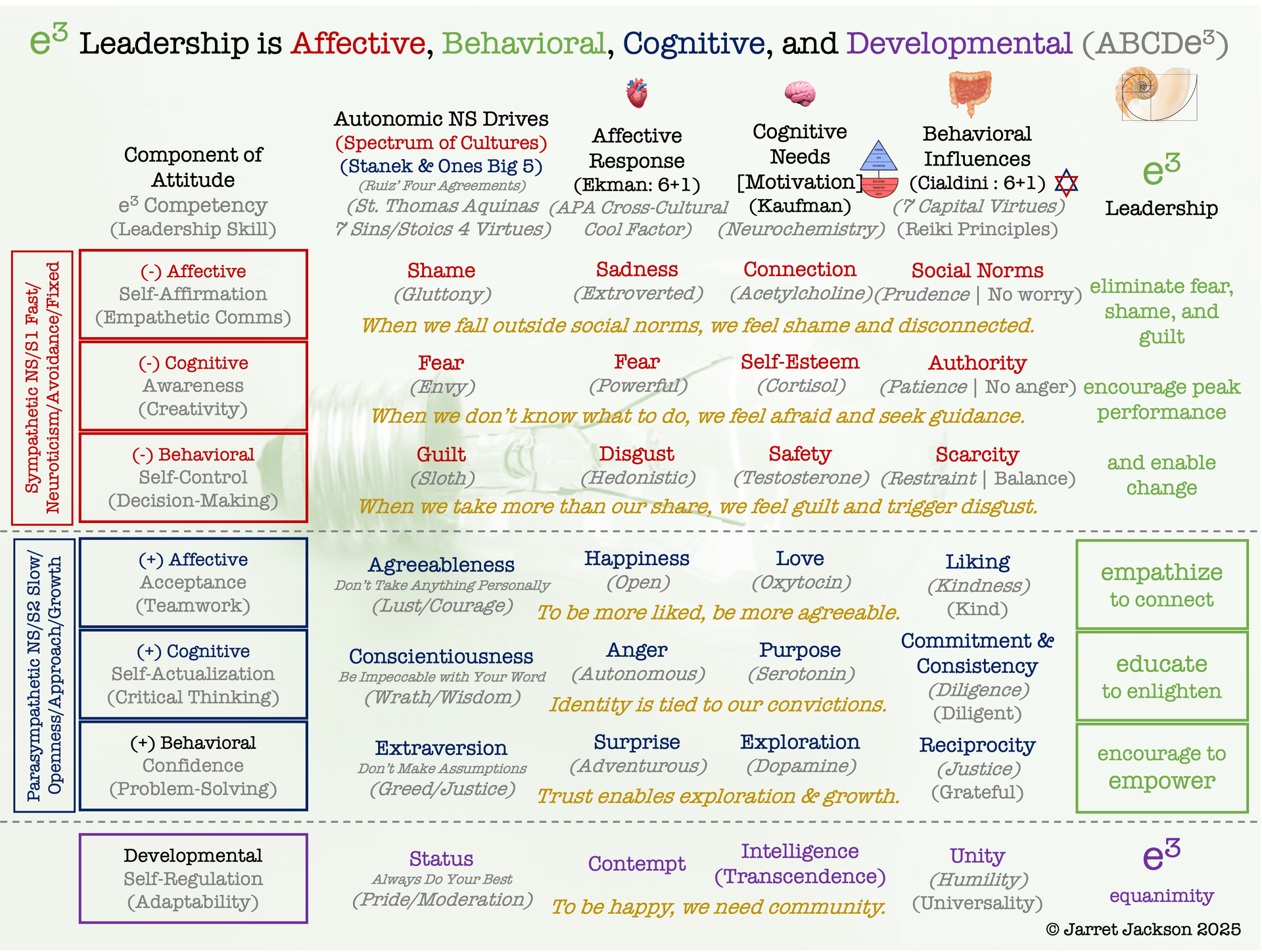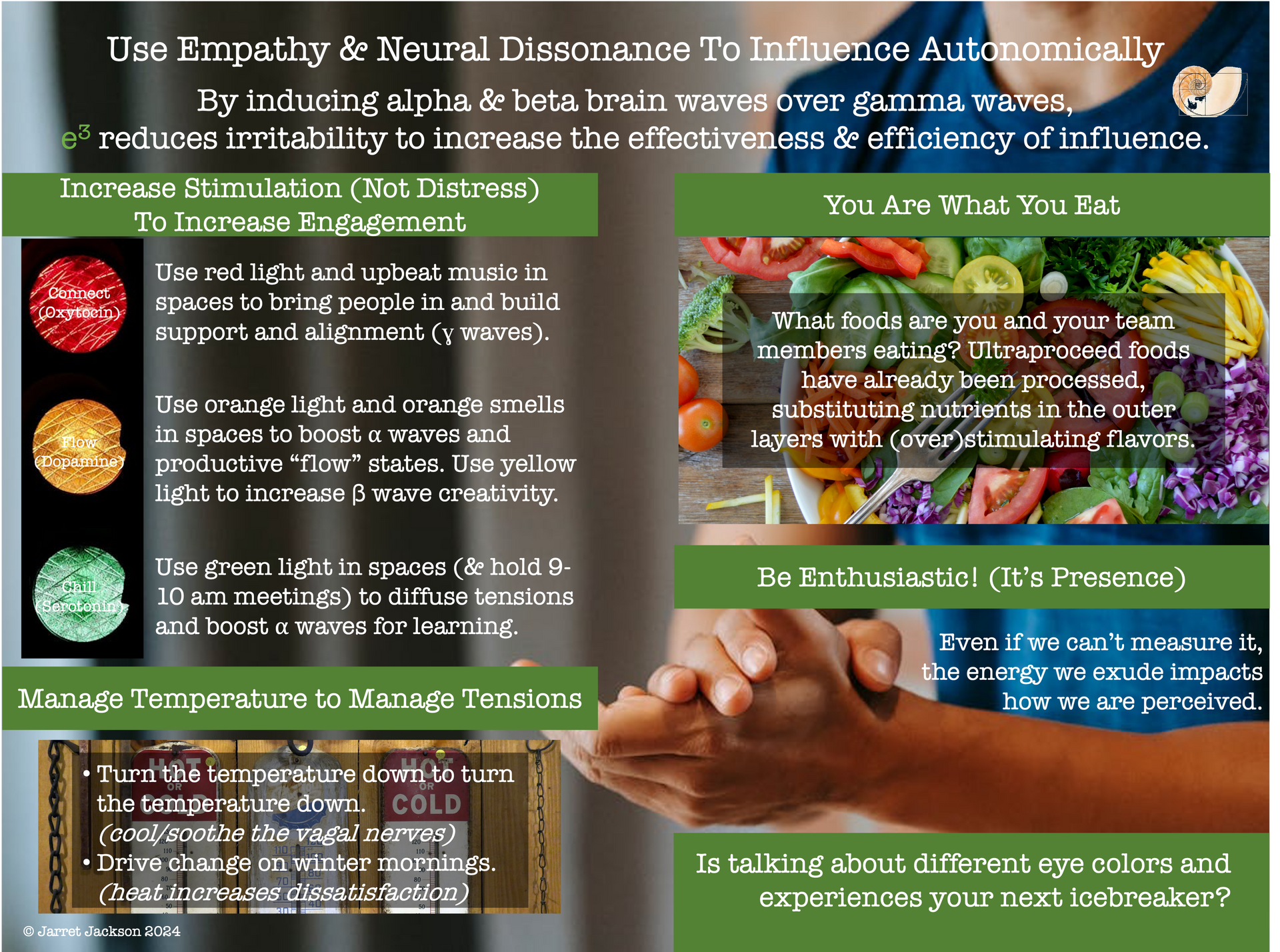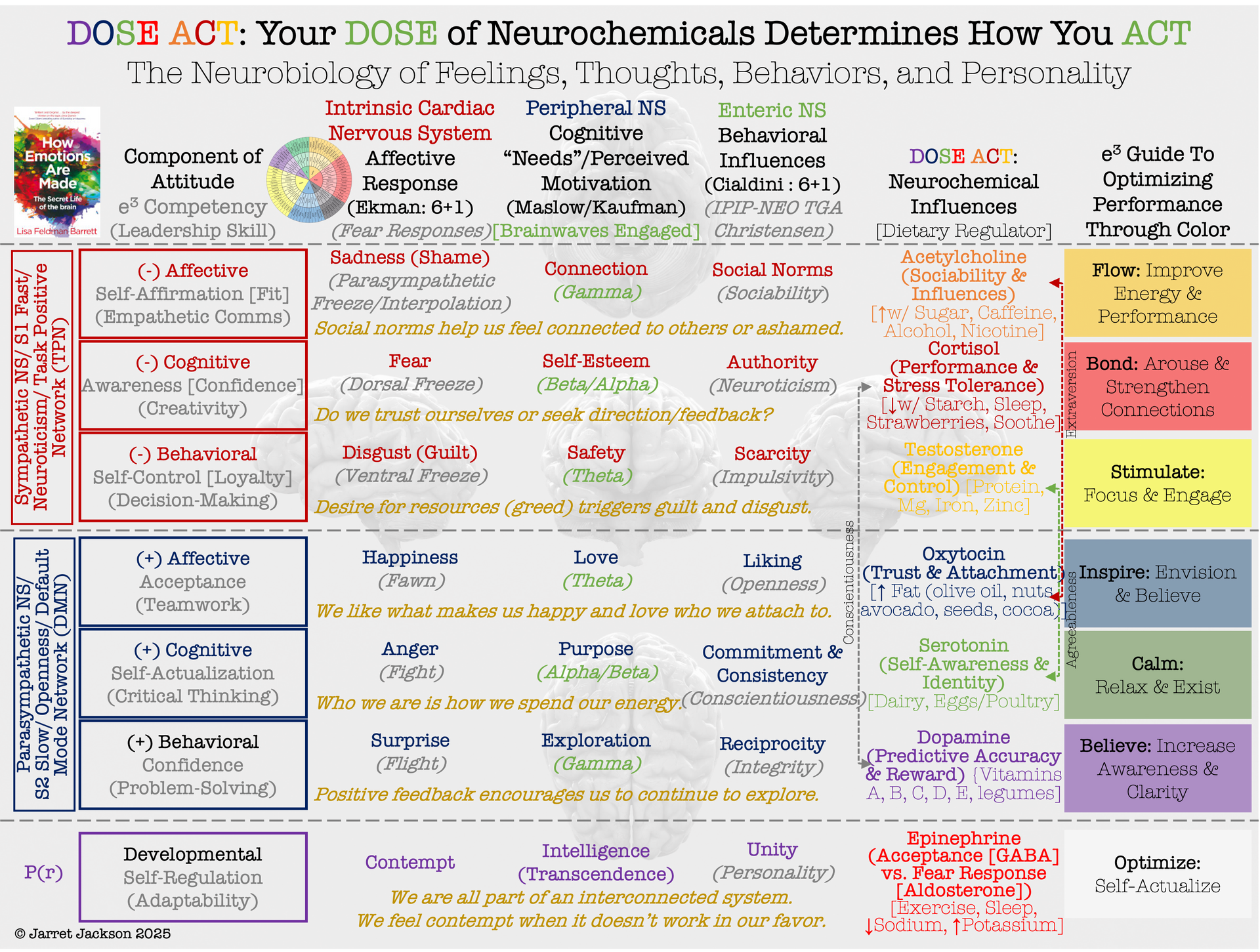The Neurobiology of Leadership
A crash course on neurobiology, psychology, physics, & performance.
Decoding the Human Machine
I started taking classes in leadership and psychology in high school and became fascinated with human motivation.
As a business strategy consultant, entrepreneur, and executive, I expanded on those early learnings with a test-and-learn approach to managing teams that allowed me to use cutting-edge interdisciplinary research to address team performance challenges and create higher-performing teams in the process.
Reviewing over 100 years of needs and motivation research helped me understand why, and the e3 theory began to emerge.







Improving performance requires us to improve our neurobiological systems, which, in turn, improve our overall mental and physical health.











By understanding how our brain is wired to address our needs, leaders can use neurobiology to motivate changes in behavior. The e3 approach combines decades of research from world-leading experts to improve day-to-day delivery, empower team members, facilitate innovation, and speed the pace of change.

How? Neural dissonance from unexpected signals causes distress, increasing the SNS response. Leaders can engage the PSNS instead by empathizing, educating, and empowering team members to become more creative and strategic thinkers, engaged and helpful team members, and driven and accountable performers.

Empathy and beta waves (found in yellow light) increase engagement to drive change while minimizing distress. Resolving neural dissonance is faster and more effective than inducing cognitive dissonance and creating distress to increase performance.

Since the same systems in our brains and bodies are used to manage our emotions (emotional intelligence), learn new skills (cognitive intelligence), and lead others (behavioral intelligence), tapping into this circuitry is key to improving performance.

e3 teaches leaders skills, tools, and rules-of-thumb for using empathy to provide real-time, actionable feedback (education) in a non-toxic way that increases performance while speeding the pace of change (empowers).

While also providing insight into how environmental factors can impact (or be used to influence) the emotions and physical and mental health of others.




